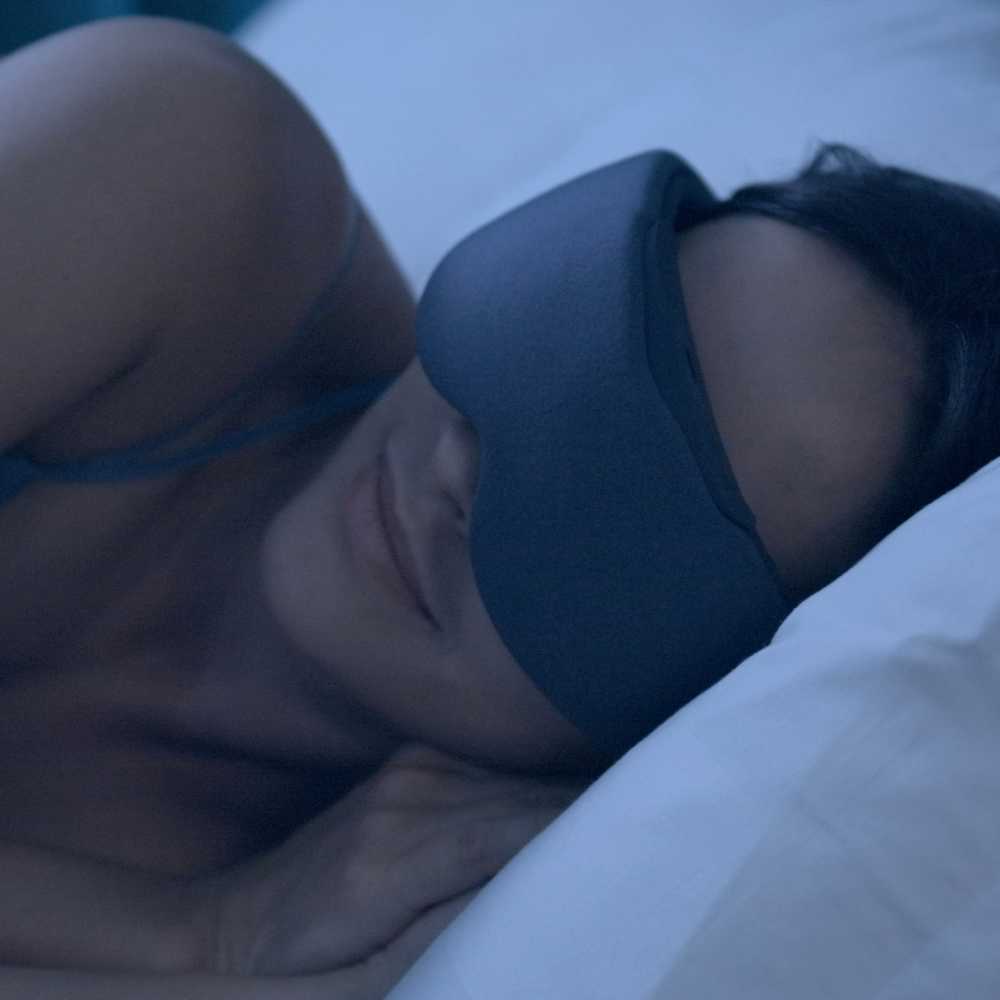
What is a Sleep Mask and How Can It Improve Your Sleep?
Understanding Sleep Masks
A sleep mask is a tool to block out light. It covers your eyes while you rest. This helps your brain know it's time to sleep. Less light means better sleep quality. Sleep masks can be made from soft materials. They help if you're sensitive to light or sleep in a bright place. Using a sleep mask is simple. You put it on before you sleep. It makes it easier to fall and stay asleep. It's great for travel or odd sleep hours.

The Science Behind Better Sleep with Sleep Masks
Countless studies show that light affects sleep quality. sleep masks aid by blocking out light. This leads to the production of melatonin, a sleep hormone. Wearing a sleep mask can increase REM sleep, which is vital for memory and recovery. Dark conditions signal the brain that it's time to rest. Sleep masks create this dark space, no matter the setting. The result is a deeper and more restful sleep. By eliminating light, sleep masks help maintain your body's natural sleep-wake cycle.
Choosing the Right Sleep Mask for You
Evaluating Materials and Comfort
When picking a sleep mask, materials and comfort are key. You want a mask that feels good against your skin and won't cause irritation. Common materials used are silk, cotton, and satin. Each has benefits for different skin types. Silk is smooth and cooling, great for sensitive skin. Cotton is breathable and easy to wash, ideal for those who prefer a natural material. Satin is soft with a bit of shine, offering a nice balance between silk and cotton. Look for masks with padding for extra comfort. Also, check if the material blocks light well. A good sleep mask should not let any light peek through. This will help you sleep deeply, even in a lit room or during the day. Choose a mask with materials that suit your skin type and comfort preferences.
The Importance of Fit and Adjustable Features
Picking the perfect sleep mask is vital for comfort and effectiveness. Here's why fit and adjustability matter:
- Perfect Fit: A mask that fits well won't slip off as you move during sleep. It should snugly cover your eyes without pressure.
- Adjustable Straps: Look for masks with elastic or velcro straps. They let you adjust the tightness. This means a custom fit for any head size.
- Avoiding Discomfort: Masks that are too tight can cause headaches. Ones that are loose may let in light, defeating the purpose. Adjustability prevents these issues.
- Personal Preferences: The ability to adjust can cater to your personal comfort preference, whether you like it snug or loose.
Remember, the right fit and adjustability enhance your sleep quality by ensuring the mask stays in place and blocks out light effectively.
Additional Sleep Mask Accessories to Enhance Your Experience
When selecting a sleep mask, consider enhancing accessories. Here are a few you might add:
- Contoured Eye Cups: They allow for eye movement and prevent pressure on your eyelids.
- Cooling Gel Inserts: These can reduce puffiness and are soothing.
- Adjustable Straps: Straps that adjust can offer a better fit.
- Travel Pouches: Keep your mask clean on the go.
- Noise-Canceling Earplugs: Pair these with your mask to block out sound.
These extras can make sure your sleep mask fits well and feels great. They can also help you get the best sleep, even when you travel.
Incorporating a Sleep Mask into Your Nightly Routine
Establishing a Consistent Sleep Schedule
To maximize the benefits of a sleep mask, start by setting a fixed bedtime. A regular sleep-wake cycle helps your body know when to expect rest. Try to go to bed and wake up at the same times each day, even on weekends. Sticking to this schedule reinforces your natural circadian rhythm, enhancing overall sleep quality. When you wear your sleep mask within this routine, it signals to your brain that it's time to wind down, making it easier to fall asleep.
Combining Sleep Masks with Other Sleep Hygiene Practices
To maximize the benefits of using a sleep mask, combine it with good sleep habits. Here are some simple practices:
- Keep a regular bedtime to help set your body's internal clock.
- Turn off bright screens at least an hour before bed for better melatonin production.
- Ensure your sleeping area is quiet, dark, and cool to promote restful sleep.
- Consider using white noise machines or earplugs to block out disruptive sounds.
- Stick to a pre-sleep routine such as reading or meditation to calm your mind.
- Avoid heavy meals, caffeine, and alcohol close to bedtime as they can interfere with sleep.
Integrating a sleep mask with these habits helps signal your body that it's time to sleep.
Tips for Maintaining Your Sleep Mask
Keeping your sleep mask clean and in good shape is key. Here's how:
- Wash Regularly: Gently hand wash or check if it's machine safe.
- Dry Properly: Air dry to keep the shape and avoid fabric damage.
- Storage: Store it flat or hang it up. Keep it away from direct sunlight.
- Inspect Often: Look for wear and tear to replace if needed.
Take these steps for a fresh sleep mask every night.
